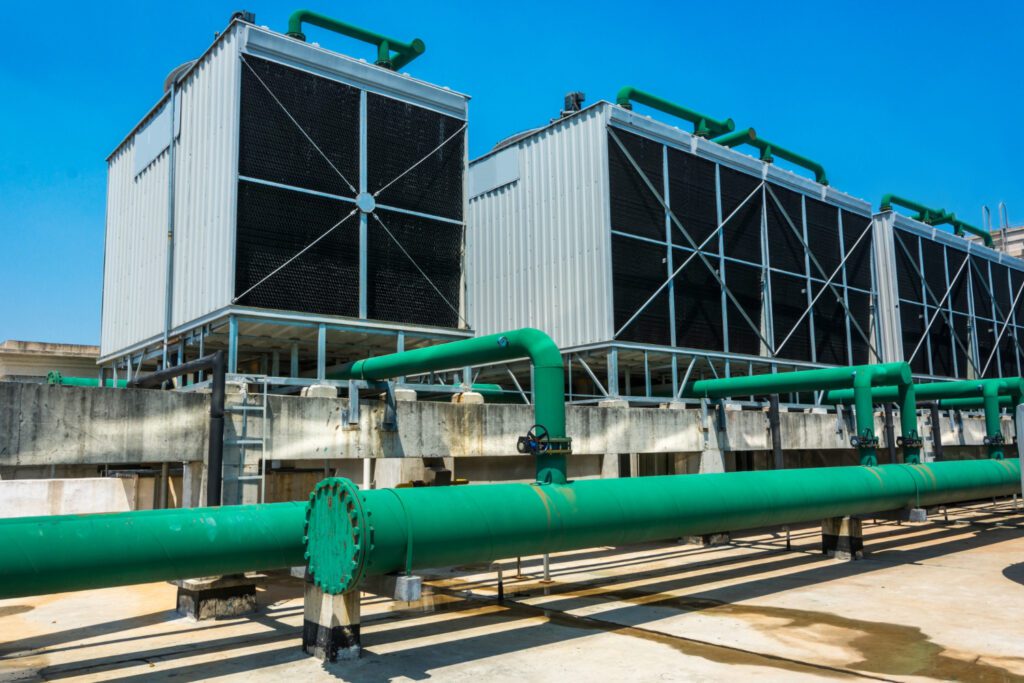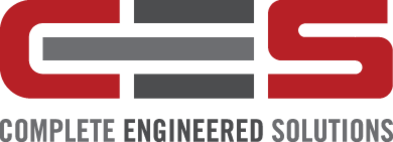Essential Questions to Ask Your Air Compressor Supplier

High-quality air compressors have become the backbone of power-efficient industrial operations due to their versatile functioning. These machines are crucial in shaping various industries, from manufacturing and automotive to construction and healthcare. However, making an informed choice of machinery supplier in a sea of options can feel daunting and overwhelming. Businesses must ask appropriate questions and conduct thorough assessments to make a wise and careful decision in selecting the right air compressor supplier.
Identifying Your Air Compressor Requirements
Before selecting a vendor, you must take the preliminary step of conducting a needs assessment. Undergoing this step is significant in choosing the most suitable equipment for your specific needs. While every business is different, the criteria for making an evaluation is based on certain factors, such as:
Air pressure: Determine the minimum and maximum pressure levels required for your applications, considering tool requirements, system pressure drops, and any pneumatic machinery in use.
Air flow rate: Calculate the volume of air needed to power your equipment or processes, ensuring the compressor can deliver the necessary airflow to meet demand.
Duty cycle: Evaluate the expected duty cycle of the compressor, including continuous or intermittent usage, to ensure it can handle the workload without overheating or experiencing premature wear.
Power source: Determine whether the compressor will be powered by electricity, gasoline, diesel, or another energy source, considering availability, cost, and portability.
Size and portability: Consider the physical dimensions and weight of the compressor, especially if mobility or space constraints are a concern, ensuring it can be easily transported and installed as needed.
Noise level: Evaluate the noise emissions of the compressor, particularly in indoor or noise-sensitive environments, to minimize disruptions and ensure compliance with regulations.
Maintenance requirements: Assess the maintenance needs of the compressor, including oil changes, filter replacements, and service intervals, to plan for ongoing upkeep and minimize downtime.
Selecting the Right Air Compressor Supplier
While every supplier claims to be the best, it is important to remember that the best doesn’t always equal the right fit for you. Just as each business’s requirements differ, each supplier is different. To find the most compatible match for yourself, it is crucial to personalize your search process. When identifying potential suppliers, you can evaluate them on the following basis to test compatibility.
- Product Quality
- Range of products
- Customization options
- After-sales support
- References and testimonials
- Value for investment
- Regulatory compliance
- Technical expertise
Assessing your choices on the following factors helps you leverage a plethora of benefits that hold the power to transform your business. Some notable advantages businesses get from selecting a suitable vendor include the following.
- Quality assurance: A reputable supplier offers high-quality air compressors that meet industry standards, ensuring reliability, durability, and performance.
- Reliable delivery and logistics: Established suppliers have efficient logistics networks, ensuring timely delivery of equipment, spare parts, and supplies to minimize downtime and keep operations running smoothly.
- Cost efficiency: Working with a reputable supplier can lead to cost savings in the long run, as they offer competitive pricing, energy-efficient solutions, and guidance on optimizing system performance to minimize operating costs.
- Long-term partnership: Choosing the right supplier fosters a mutually beneficial long-term partnership, with opportunities for continued collaboration, product upgrades, and support as your needs evolve.
Essential Questions to Consider Asking Your Air Compressor Supplier
In this section, you can explore a set of questions that one may ask a potential air compressor company to assess the quality of their services.
Product Specifications
Discussing product specifications with an air compressor supplier is crucial because it allows you to ensure the equipment meets your specific requirements. Detailed specifications provide valuable information about the compressor’s capabilities, performance, and compatibility with your intended uses. Understanding these details also helps avoid performance issues. Some questions to ask in this concern would include:
- What is the maximum air pressure output of the compressor?
- Can you provide information about the compressor’s duty cycle and recommended usage patterns?
- What power source is required for the compressor (electricity, gasoline, diesel)?
- What are the physical dimensions and weight of the compressor?
Performance and Efficiency
Asking an air compressor supplier about the machine’s performance and efficiency is crucial, as it directly affects how well the equipment works. Asking about efficiency also helps gauge the compressor’s energy use and operating costs over time. A more efficient compressor reduces energy bills and minimizes environmental impact, thus supporting sustainability efforts. You can ask the following questions to gauge the performance efficiency.
- What measures are in place to ensure the compressor maintains consistent performance levels over time, particularly in demanding or high-volume applications?
- How does the compressor’s efficiency rating translate into energy savings?
- Are any features or technologies incorporated into the compressor to enhance efficiency?
- What maintenance practices or service intervals are recommended to optimize the compressor’s performance and efficiency while minimizing downtime?
Maintenance and Service
Regular maintenance is key to keeping air compressors running at their best by reducing downtime and extending their lifespan. By inquiring about maintenance and service, you can gauge the supplier’s commitment to supporting your business. Knowing the maintenance needs upfront allows you to plan any necessary servicing, avoiding unexpected expenses. Discussing service options also lets you explore the available resources for maximizing the reliability and performance of your air compressor system. Some example questions under this domain include:
- What are the recommended maintenance intervals for this air compressor model?
- Do you offer preventive maintenance programs, and what do they include?
- Are there any warranty provisions related to maintenance, and what are the terms?
- How do you handle emergency service requests or breakdown situations?
Warranty and Support
Asking about the warranty coverage provides assurance and protection for your investment. A comprehensive warranty reflects the manufacturer’s confidence in their product and serves as a safety net in case of unexpected issues. Understanding the warranty details helps you assess the level of support you can expect and plan for any potential problems during the warranty period. Suppliers’ warranty support shows their commitment to customer satisfaction and willingness to stand behind their products. You can analyze the standards of their warranty by asking the following questions.
- What is the duration of the warranty coverage for the air compressor?
- Are there any exclusions or limitations to the warranty coverage that we should be aware of?
- How quickly can we expect a response from your team if we encounter any issues covered by the warranty?
- What is the process for initiating warranty claims, and what documentation is required?
- Do you offer extended warranty options or additional service contracts?
Cost and Payment Terms
Understanding the price of the compressor and any associated services allows you to properly budget for the investment, ensuring you’re financially prepared and avoiding unexpected expenses. Additionally, inquiring about the payment terms enables you to negotiate favorable arrangements that align with your cash flow and financial capabilities. Furthermore, discussing the costs upfront can help you identify hidden fees or additional expenses, allowing for transparent transactions. Some example questions include:
- What is the total cost of the air compressor unit, including any optional features or accessories?
- Are there any additional fees or charges that I should be aware of?
- Do you offer any discounts for bulk purchases or long-term contracts?
- What are the available payment options? Can I pay in installments, or are there financing plans available?
- Can you provide a breakdown of the warranty coverage and associated costs for extended warranties or service agreements?
Delivery and Installation
Talking to the supplier about delivery and installation affects how smoothly the compressor will fit into your operations. Understanding the installation process ensures that it’s installed safely and properly to run at its best for a long time. Discussing and understanding all this with the supplier helps you prepare for any logistical challenges, follow the manufacturer’s recommendations, and get the compressor up and running quickly in your facility. Some questions you may ask in this regard include:
- What is the estimated delivery time for the air compressor after placing an order?
- What are the shipping and handling procedures for transporting the compressor to our location?
- What key steps are involved in installing the air compressor, and how long does the process typically take?
- Are any specific site preparations or infrastructure modifications needed before installation?
Maximizing Airflow: Invest in Cutting-Edge Compressors
Investing in cutting-edge compressors can bring numerous advantages to maximize industrial airflow. These advanced machines often boast greater energy efficiency, helping to lower operating costs and reduce environmental impact. They frequently feature innovative designs and materials, improving reliability, durability, and longevity. Additionally, cutting-edge compressors may offer advanced control systems, enabling precise monitoring and optimization of air output, further enhancing efficiency and productivity.
Trusting CES Expertise: Upgrade Your Air Quality
Complete Engineered Solutions is a pioneer in offering a wide range of top-notch air compressors and expert solutions tailored to your needs. With years of experience in the industry, our dedicated team is committed to providing you with the latest compressor technology, unparalleled reliability, and exceptional service. Visit our website to schedule a consultation and get personalized recommendations for your business.
